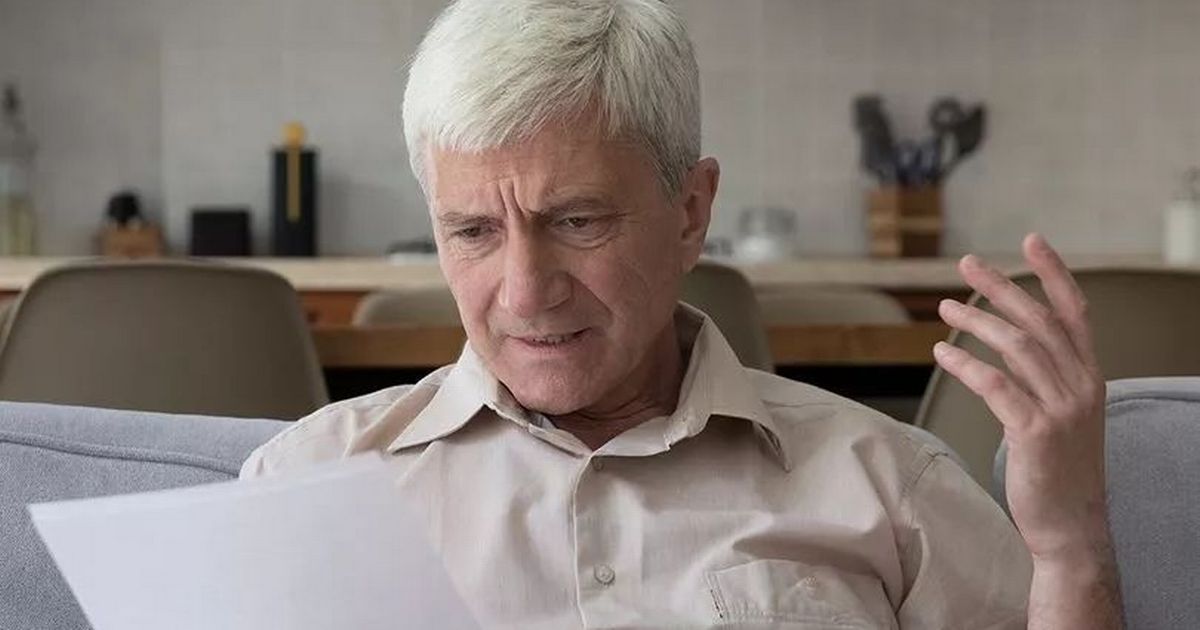Economists are warning the UK faces ‘tax rises in the future’ if the triple lock mechanism for the state pension remains in place Older man worried about state pension(Image: inyourArea)
Older man worried about state pension(Image: inyourArea)
The pension triple lock is ensnaring the UK in a “vicious circle” of “paying higher taxes” to benefit pensioners, says a prominent thinktank. The triple lock guarantee, introduced by the Conservative and Liberal Democrats coalition government in 2010, ensures that the state pension rises each April according to the highest of total earnings growth between May and July of the previous year, Consumer Price Index (CPI) inflation the previous September, or 2.5%.
However, as the Labour government continues to explore ways to reduce public expenditure, the triple lock has been subjected to fresh scrutiny by industry figures and thinktanks, including the Institute of Economic Affairs (IEA).
Tom Clougherty, executive director of the IEA, cautioned that UK workers could “face huge tax rises in the future” if the mechanism remains intact. “The triple lock was meant to be a small political flourish,” he stated.
“It’s turned out to be three times as expensive as the Office for Budget Responsibility (OBR) expected when it was introduced in 2010.”
This comes as pensioners are set for a 4.8% increase in the state pension next year, following the release of figures from the Office for National Statistics (ONS) last week. These figures revealed that CPI inflation for September was 3.8%, with previously released data showing that total wage growth, including bonuses, for the quarter to July was 4.8% – this is expected to be the primary figure used for next year’s pension rise, reports the Express.
This means individuals entitled to the full new state pension could collect £241.30 weekly, or approximately £12,548 annually. Those receiving the full basic state pension could see their weekly sum climb to roughly £184.90.
“The assumption was that earnings growth would normally outpace inflation, so the triple lock would mostly just track wages,” Mr Clougherty said. “Instead, weak wage growth and volatile inflation have meant the pension has risen much faster than expected, and faster than average earnings.
“Over the 2010s and into the 2020s, the state pension has grown sharply as a share of earnings. The result is that working-age people are paying ever-higher taxes to support retirees – and have less left to save for their own old age. It’s a vicious cycle.
It’s a problem that’s only going to get worse, exacerbated by a rapidly ageing population, the economist warned. “Between now and 2070, the population is going to get much older, and we’re set to spend about 11 percentage points of gross domestic product (GDP) on age-related costs – roughly £200 billion a year in today’s money. That’s like doubling every income tax bill in the country.”
Mr Clougherty said he would be “very surprised” if Britons currently in their twenties and thirties experience a triple-lock pension, cautioning: “It simply isn’t sustainable unless we get a sudden and sustained boom in economic growth.”
When asked about what Labour could do to alter the mechanism, he hinted at the possibility of “subtle reform” such as incorporating smaller pension benefits into the state pension.
Despite his firm belief that change is necessary, he expressed scepticism over whether Chancellor Rachel Reeves has the ability to implement it without further alienating voters.
“By the end of this decade, we’ll be spending £23 billion more each year on the state pension than if we’d stuck with inflation-linking,” he stated. “That’s about half of the so-called fiscal hole facing Rachel Reeves.
“[But] in most constituencies, a majority of voters are at or approaching retirement age. Unless you can sell a broader vision, people will resist anything that takes away their benefits.”

